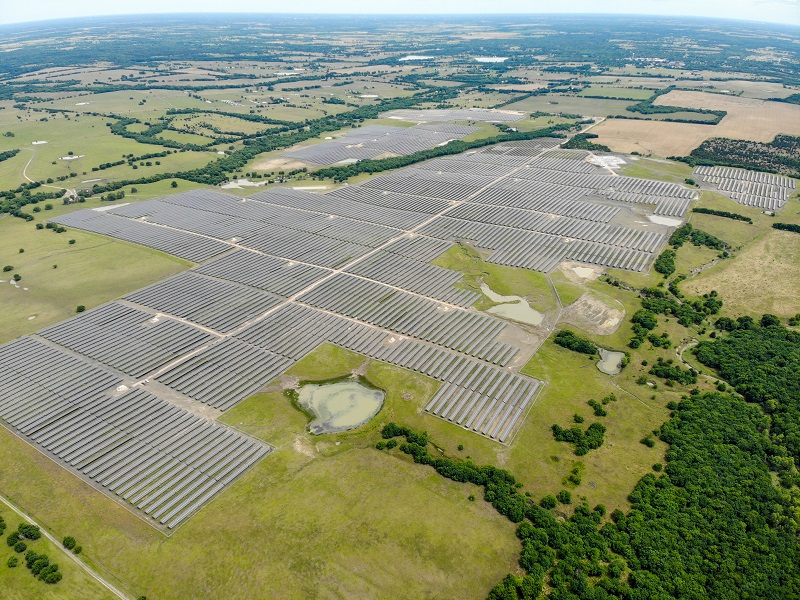Market Now
Hanwha, Microsoft partner on solar energy
 |
A solar energy production site built by Hanwha Solutions in Texas (Hanwha Group) |
Hanwha Solutions on Thursday announced that it has signed a strategic partnership with Microsoft for solar energy projects, marking the first collaboration between a global solar supplier and an information and communication technology behemoth to reduce carbon emissions and boost the clean energy economy.
Under the partnership, Hanwha Solutions, a chemical and energy company under South Korea’s seventh largest conglomerate Hanwha Group, said the two sides will push for various solar energy development projects together.
Hanwha Q Cells, a US solar energy subsidiary of Hanwha Solutions, will provide solar panels as well as engineering, procurement and construction services to Microsoft’s solar projects selected through power purchase agreements, according to the announcement.
The South Korean energy company will also supply at least 2.5-gigawatt solar panels and relevant services for Microsoft’s clean energy projects, enough to power over 400,000 households.
“The partnership signing with Microsoft means that Hanwha Solutions is turning into a total energy company that cooperates with global firms to go beyond being a solar module manufacturer,” said Lee Koo-yung, CEO of Hanwha Q Cells, in a statement. “We will strengthen our capabilities to become a leading energy company based on the solar hub, which will begin full-fledged operation next year.”
The solar hub refers to Hanwha Solutions’ plan to set up a complete solar energy business value chain in the US, with a goal to become the country’s only one-stop shop for clean energy solutions.
The company announced a 3.2 trillion won ($2.57 billion) investment on Jan. 11 to expand its solar energy production site and build a new solar energy component manufacturing campus in the state of Georgia. The investment is expected to increase the energy company’s total solar panel production capacity to 8.4 GW by the end of 2024 from the current 1.7 GW.
Hanwha Solutions said the US-made solar panel industry, which is expected to grow by 20 percent each year, will accelerate Hanwha Q Cells’ rise to the leadership position in the solar energy industry.
Microsoft has committed to being carbon negative by 2030 with a shorter-term goal of replacing 100 percent of its electricity consumption with renewable energy by 2025. Microsoft said it is supporting Hanwha Q Cells’ solar products to bring more renewable energy to the US.
“Building a resilient solar energy supply chain is essential to advancing a global green energy economy. Microsoft’s partnership with (Hanwha Q cells) will help make this vision a reality by bringing innovation and investment to rural Georgia,” Brad Smith, vice chair and president at Microsoft, said in a statement.
By Kan Hyeong-woo (hwkan@heraldcorp.com)








